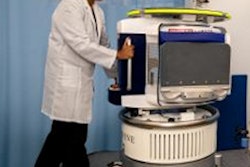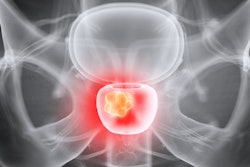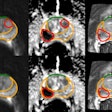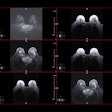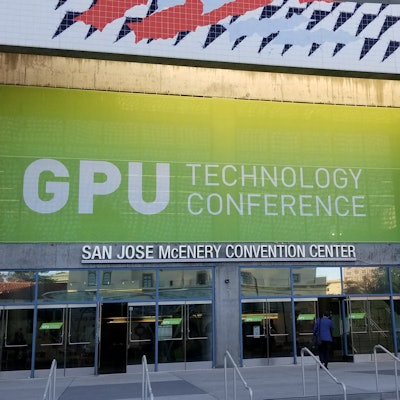
Graphics processing unit technology developer Nvidia is showcasing its Clara AI toolkit, designed to facilitate the training and deployment of artificial intelligence (AI) algorithms in medical imaging, for radiologists at its 2019 GPU Technology Conference (GTC) this week in San Jose, CA.
Clara AI includes 13 classification and segmentation AI algorithms and software tools, according to the vendor. In addition, its assisted annotation capability aims to speed up the creation of structured datasets by enabling completion of image annotations in minutes instead of hours, Nvidia said.
The toolkit also supports transfer learning, enabling existing models to be adapted to fit local variables. With transfer learning, deep-learning algorithms can be customized to data that includes local demographics and imaging devices without having to move or share patient data, the company said. Both AI-assisted annotation and transfer learning are available via Clara AI's Clara Train software development kit (SDK).
What's more, Clara AI's Clara Deploy SDK is designed to provide a container-based development and deployment framework for medical imaging AI, according to the firm. Deploy SDK uses standards such as DICOM to facilitate the integration of AI models into existing radiology workflow, Nvidia said.
Current institutions using Clara AI include the German Cancer Research Center (DKFZ), which has incorporated the toolkit into the open-source viewer for its Medical Imaging Interaction Toolkit (MITK). Specifically, the center has integrated the Clara Train SDK into the MITK Workbench Segmentation plug-in, providing 2D and 3D tools for polygon editing and segmentation, according to the firm.
Meanwhile, radiologists at The Ohio State University have used Clara AI to incorporate a model developed at another organization, validate it, and annotate a local dataset to adapt the model to its patients.
At the U.S. National Institutes of Health (NIH) Clinical Center, researchers and Nvidia scientists have utilized Clara AI to develop a domain generalization method for segmenting the prostate from surrounding tissue on MRI. In testing, the localized model achieved performance similar to that of a radiologist and outperformed other algorithms that had been trained and evaluated on data from the same domain, Nvidia said. Furthermore, the University of California, San Francisco is employing a scalable infrastructure powered by Clara AI that provides for creation, testing, and deployment of multiple AI algorithms across radiology, according to the vendor.
Nvidia said that Clara AI is available now for hospitals, research institutions, and the medical imaging industry.





